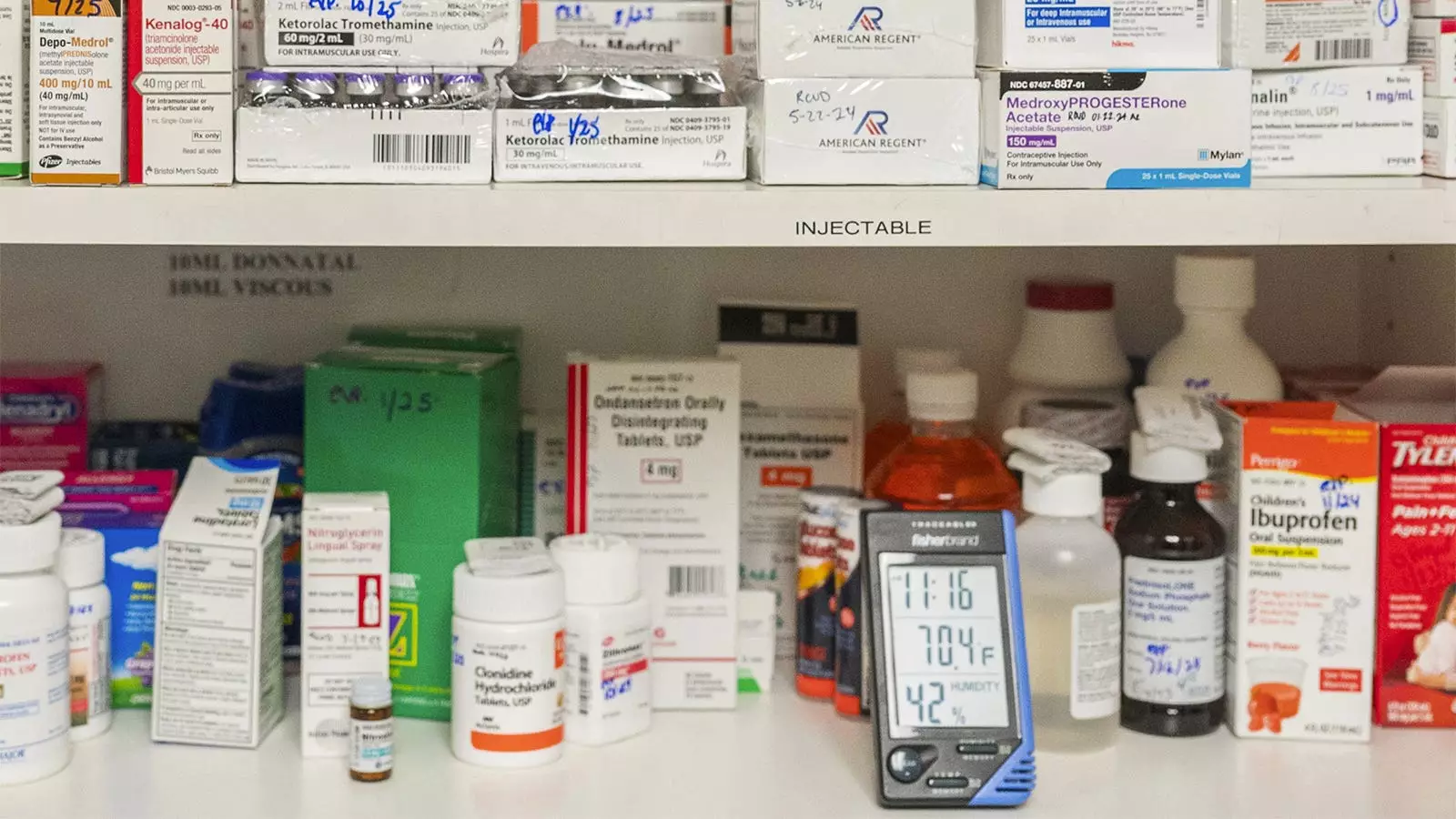Extreme heat not only poses a risk for heat-related illnesses but can also have a negative impact on medications in more ways than one. Hot weather can lead to a deterioration of medicines like insulin that require refrigeration, and even cause inhalers to explode. Epinephrine injectors, such as EpiPens, may also malfunction in high temperatures. Additionally, medications delivered through the mail can degrade due to exposure to heat. The effects of extreme heat on medications can amplify the side effects of common drugs, leading to potential health risks.
Certain medications can exacerbate the effects of heat on the body. For example, blood pressure pills that reduce fluid in the blood can result in dehydration, while beta blockers for heart conditions may reduce blood flow to the skin and decrease awareness of dangerous heat levels. Some antidepressants can affect the body’s ability to regulate temperature, making it harder to stay cool. Over-the-counter pain relievers like aspirin can also decrease fluid and sodium levels, making it more challenging to cope with high temperatures. Combining the effects of heat with those of certain medications can lead to lightheadedness, falls, and other health concerns.
In addition to heat-related issues, certain medications can increase sensitivity to the sun, leading to skin rashes and sunburns. Antibiotics, antifungals, and acne drugs are some examples of medications that can heighten sun sensitivity. It is essential to take precautions such as staying under an umbrella, wearing sun-protective clothing, and using sunscreen to prevent sun-related skin issues while on these medications.
Medications should generally be stored in a cool, dry place unless refrigeration is required. However, storing medications while traveling can be challenging. It is advisable to check the storage requirements on medication labels before embarking on a trip. When traveling by car, even medications that do not need refrigeration should be kept in a cooler to avoid exposure to high temperatures. Similarly, carrying medications in a carry-on bag is recommended when flying, as cargo holds can get too cold.
Mail-order pharmacies are responsible for ensuring that medications are stored and transported at safe temperatures. However, medications can still be affected by extreme heat during transit or delivery. It is crucial to pay attention to the packaging and temperature monitoring of mail-order medications. In cases where medication is delivered at an inconvenient time, like during extreme heat, it is essential to take precautions to prevent damage. If there are concerns about the quality of mail-order medication due to heat exposure, contacting the pharmacy to report the issue is recommended.
While there are known risks associated with heat and medications, researchers in the U.S. and Australia suggest that more scientific evidence is needed to support many of the common warnings. Understanding which medications are most at risk in high temperatures can help in developing better prevention strategies. As climate change accelerates, the urgency to identify the riskiest medications in extreme heat becomes paramount. Research is essential to provide guidance on how to mitigate the effects of heat on medications and protect public health.

Leave a Reply